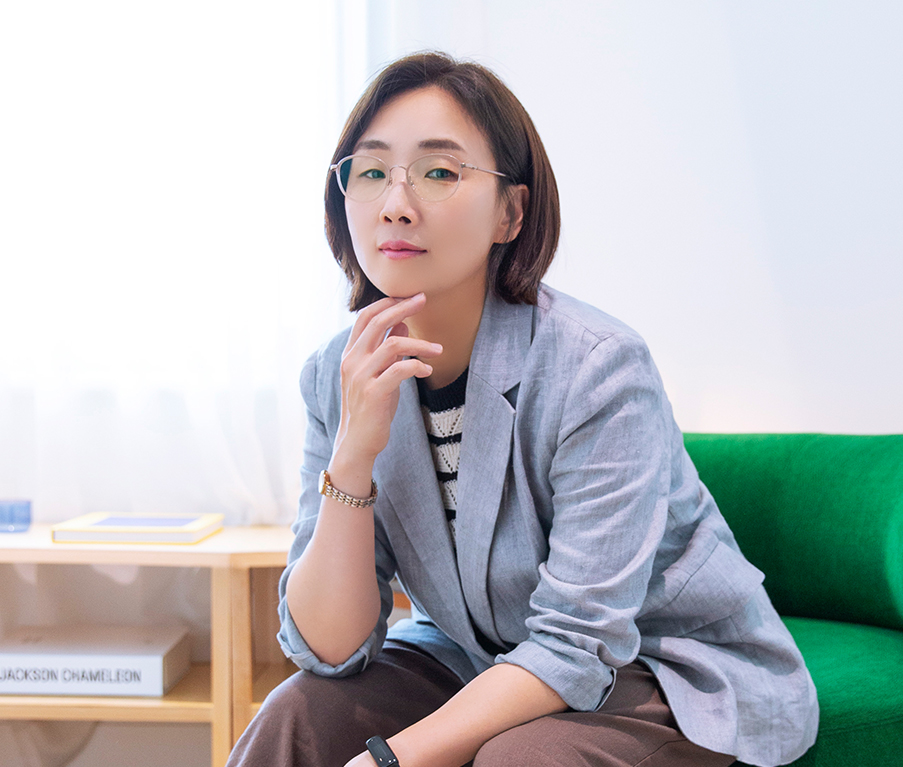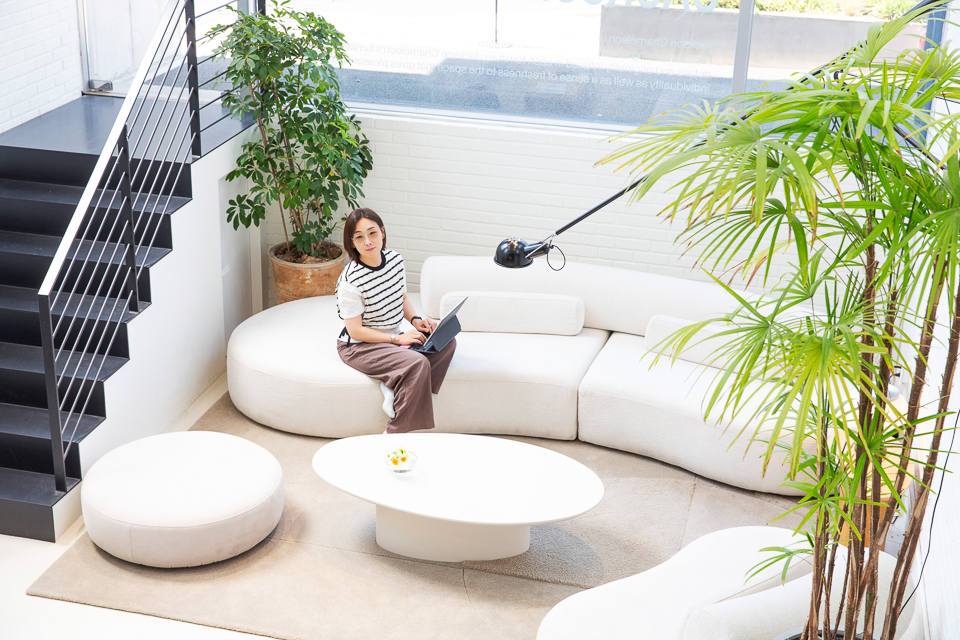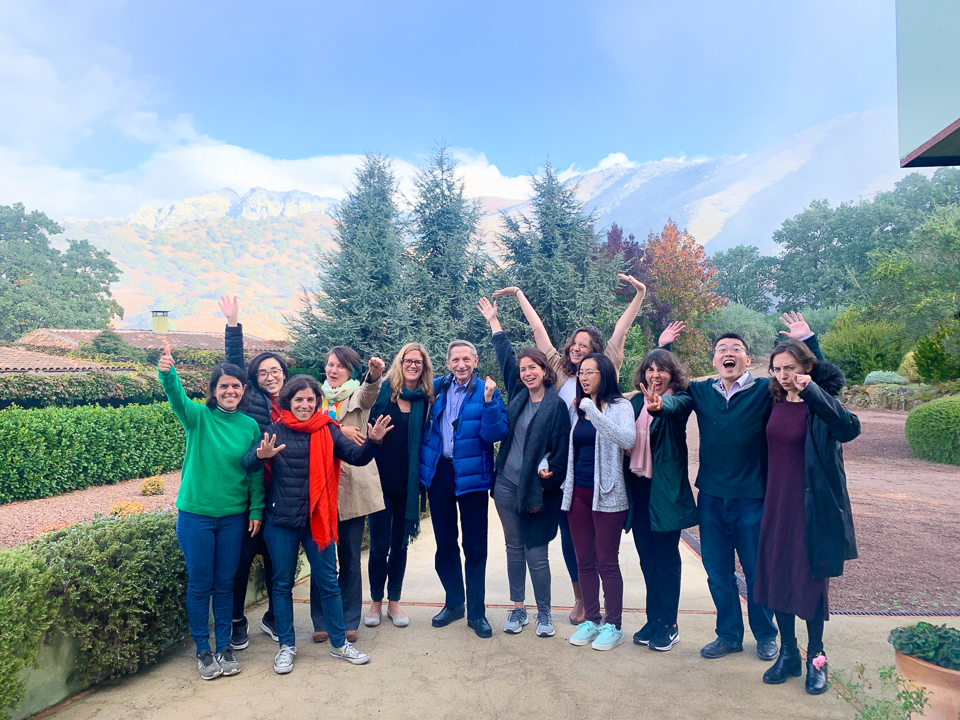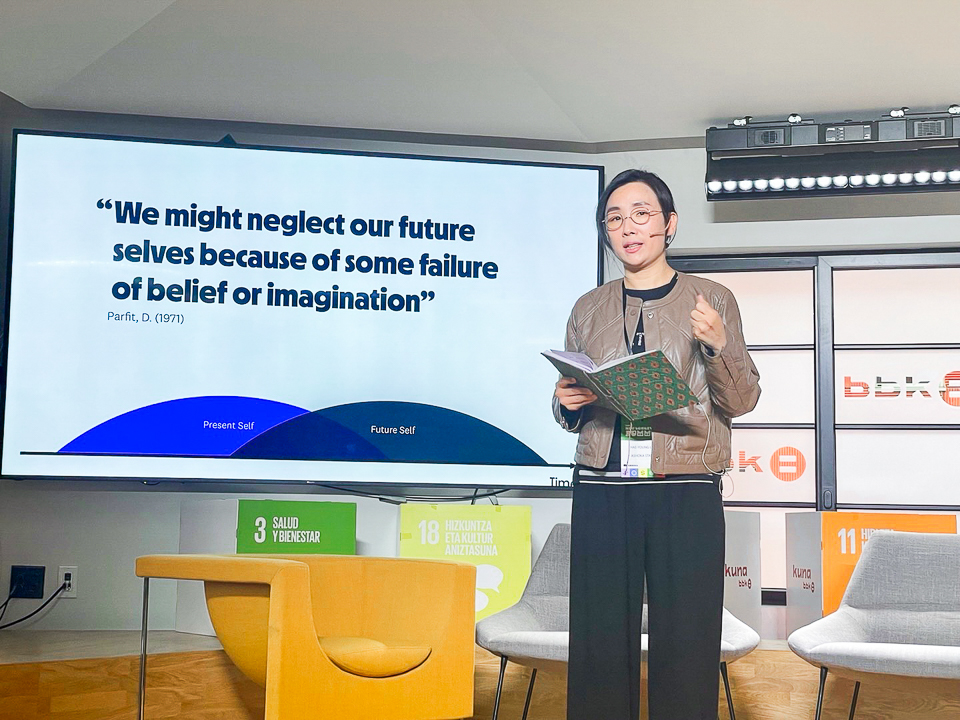- writing date 2024.10.02
- author Communication Team
- hits 3
Global NGO investing in social innovators
Lee Hye-young, Representative of Ashoka Korea
(1995, Department of English Language and Literature)
who pave the way to a better world
 Founded in 1980 with the motto “Everyone a Changemaker”, the global nonprofit Ashoka has been searching for social innovators (Ashoka Fellows) around the world who tackle global issues with innovative ideas. Lee Hye-young, who became the inaugural country representative of Ashoka Korea in 2013, has been deeply involved in human rights and social change across Asia, including China and Hong Kong, since her university days. Drawing on this experience, she has supported more than 15 Korean Ashoka Fellows over the past 12 years.
Founded in 1980 with the motto “Everyone a Changemaker”, the global nonprofit Ashoka has been searching for social innovators (Ashoka Fellows) around the world who tackle global issues with innovative ideas. Lee Hye-young, who became the inaugural country representative of Ashoka Korea in 2013, has been deeply involved in human rights and social change across Asia, including China and Hong Kong, since her university days. Drawing on this experience, she has supported more than 15 Korean Ashoka Fellows over the past 12 years.
Cultivating a diverse society fueled by sensitivity to human rights
Looking back, Lee sees her teenage years were a time of darkness. At the time children, in the prime of their lives, were often judged solely on their grades or level of obedience, and violence was common in schools.
“I spent my elementary and middle school years on the outskirts of Seoul. Even though I was a teacher’s pet and did well in my studies, I was deeply hurt by seeing my friends exposed to violence, without any help being forthcoming. Grown-ups said things were getting better in Korean society, citing the Olympics and democratization, but as a kid it didn’t seem that way. I think that’s when my trust in adults was shattered.”
Discovering herself at KU and The Granite Tower
Lee moved to Hong Kong with her family during her time in high school for three years, as her father was dispatched there by his company. Those days spent in a foreign society with friends from all walks of life changed her perspective on the world.
After these new experiences in a foreign place, Lee returned to South Korea as she was about to enter university. She enrolled in the Department of English Language and Literature at Korea University, her father’s alma mater. "“During the Korean War, my grandfather was wrongly accused of collaborating with the North and was executed. My father grew up feeling lonely because of his sudden loss, but he worked hard to get into Korea University. I also wanted to go to my father’s school. As the oldest daughter in my family, I think I felt a sense of responsibility.”
Lee became involved with The Granite Tower, the English newspaper at Korea University, starting in her second semester of freshman year. She was so deeply immersed in the newspaper that she eventually took on the role of editor-in-chief and oversaw the entire publication process. This experience became a crucial foundation for her identity as a social entrepreneur. “It was really rewarding to see people from different backgrounds working together toward the same goal. I had to collaborate with outside experts for advice on typesetting and interviews. Through this process, I discovered that I really enjoyed creating and building something from scratch.”
 “Give value first. I truly believe that when I do this, the benefits eventually come back to me two or three times over.”
“Give value first. I truly believe that when I do this, the benefits eventually come back to me two or three times over.”
Give value first
While working at the international desk of The Granite Tower, Lee developed an interest in the NGO sector. During her time in graduate school, she spontaneously sent an email to the Asian Human Rights Commission in Hong Kong and ended up interning there. A visit to Gwangju, at the invitation of the Commission, became a turning point in her life. “That organization has been involved in work related to the May 18 Democratization Movement in Gwangju. Witnessing the human rights violations and the suffering of the families of victims of the Korean War and the Gwangju Democratization Movement, I felt a connection with them and with those currently suffering in North Korea.”
This experience led her into the field of human rights in Asia and North Korea. Later, she joined the Citizens’ Alliance for North Korean Human Rights, where she was responsible for international campaigns. In 2005, she founded the human rights organization “Baspia,” aiming to create a new approach to human rights movements and to connect different parts of Asia. After moving to Japan upon her marriage, she returned to South Korea following the 2011 Great East Japan earthquake and learned that the global NGO Ashoka was establishing a branch in South Korea. She volunteered to lead it, and since then she has met and supported many fellows of the organization.

- Bill Drayton and other leaders during a retreat at Ashoka’s headquarters In 2019

- Delivering an opening speech at the first New Longevity International Conference held in Bilbao, Spain in 2022
“Ashoka’s focus covers all areas. We select Ashoka fellows who see social issues as deeply important and come up with creative solutions, supporting them so they can concentrate on their work.”
They emphasize that the experiences we have up to the age of 20 are critical for people to become change-makers in many fields, not just as social entrepreneurs. This focus on educational projects in Ashoka Korea stems from that belief. “The area where we spend the most time in South Korean society is in the field of education. I believe the first step toward ‘Everyone a Changemaker’ is transforming education.”
Lee encourages others to trust their instincts, even if society offers formulaic solutions to problems, especially when these solutions feel wrong. There are amazing people out there waiting to solve problems together, and ultimately, greater value will emerge from this process. “I can't forget the advice I got from a fellow in South Africa: ‘Give value first.’ When I do this, the benefits always come back to me two or three times over, so I never lose hope. After living for over 40 years, I truly believe this to be true.”
When Lee wakes up in the morning, she starts her day by checking emails from five continents. She believes that the values and courage of one person from somewhere in the world can be a powerful force for social change. With encouraging words reminding us that we are not alone, she invites us to join her colleagues in the field.